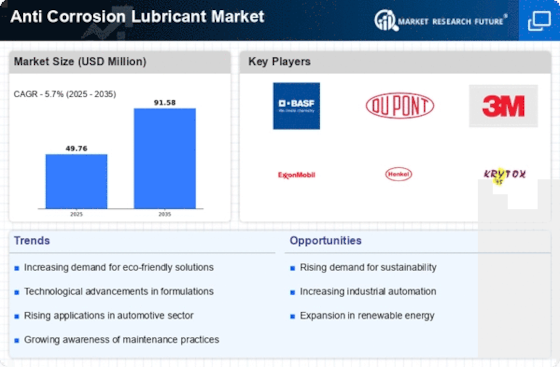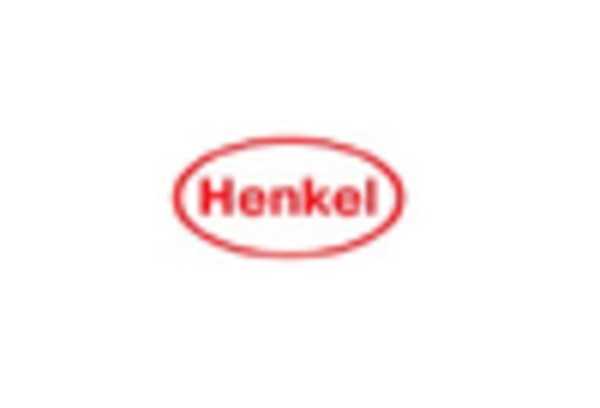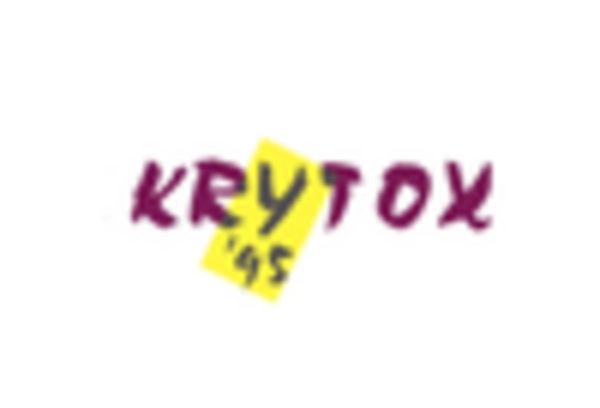Market Trends
Key Emerging Trends in the Anti Corrosion Lubricant Market
The market trends of anti-corrosion lubricants are witnessing significant changes driven by advancements in technology, industry-specific needs, and a growing emphasis on corrosion prevention. A notable trend in this market is the increasing demand for high-performance anti-corrosion lubricants tailored to specific industrial applications. As corrosion poses a significant challenge in various sectors, including automotive, manufacturing, marine, and aerospace, manufacturers are developing specialized lubricants that not only provide effective lubrication but also offer robust protection against corrosion, ensuring the longevity and optimal performance of machinery and equipment.
Moreover, environmental sustainability is a key influencer in the anti-corrosion lubricant market. As industries focus on reducing their environmental impact, there is a growing demand for lubricants with eco-friendly formulations. Manufacturers are responding by developing anti-corrosion lubricants that use biodegradable and non-toxic ingredients, aligning with the broader industry push towards sustainable practices. This trend reflects the increasing importance of environmentally conscious solutions in corrosion prevention and lubrication.
Customization is emerging as another significant trend in the anti-corrosion lubricant market. Different industries and applications have unique lubrication and corrosion protection requirements. Manufacturers are offering customizable formulations to meet the specific needs of diverse sectors, such as heavy machinery, electronics, and precision engineering. This trend allows users to select anti-corrosion lubricants that align with the materials, operating conditions, and performance expectations of their equipment, contributing to enhanced efficiency and reduced maintenance costs.
Technological advancements are playing a pivotal role in reshaping the anti-corrosion lubricant market. Manufacturers are incorporating advanced additives and nanotechnology to improve the performance characteristics of their lubricants. These advancements contribute to better friction reduction, wear resistance, and corrosion inhibition. Additionally, the development of smart lubrication technologies, such as sensors and condition monitoring systems, is influencing the demand for anti-corrosion lubricants that can enhance the overall reliability and lifespan of machinery.
Furthermore, there is a growing trend towards multifunctional anti-corrosion lubricants. As industries seek to streamline their maintenance processes, manufacturers are formulating lubricants that not only protect against corrosion but also offer additional functionalities, such as cleaning, penetrating, and water displacement properties. These multifunctional lubricants contribute to simplified maintenance routines, reducing the need for multiple products and enhancing overall operational efficiency.
In terms of market dynamics, competition among anti-corrosion lubricant manufacturers is intensifying. Companies are investing in research and development to enhance the sustainability, customization, technological features, and multifunctionality of their products. Meeting industry-specific standards for corrosion prevention, addressing the diverse needs of different sectors, and ensuring compatibility with various materials and operating conditions are critical factors for success in this competitive market. As industries increasingly recognize the importance of effective corrosion prevention in their equipment, the anti-corrosion lubricant market is expected to witness sustained growth and innovation.


















Leave a Comment